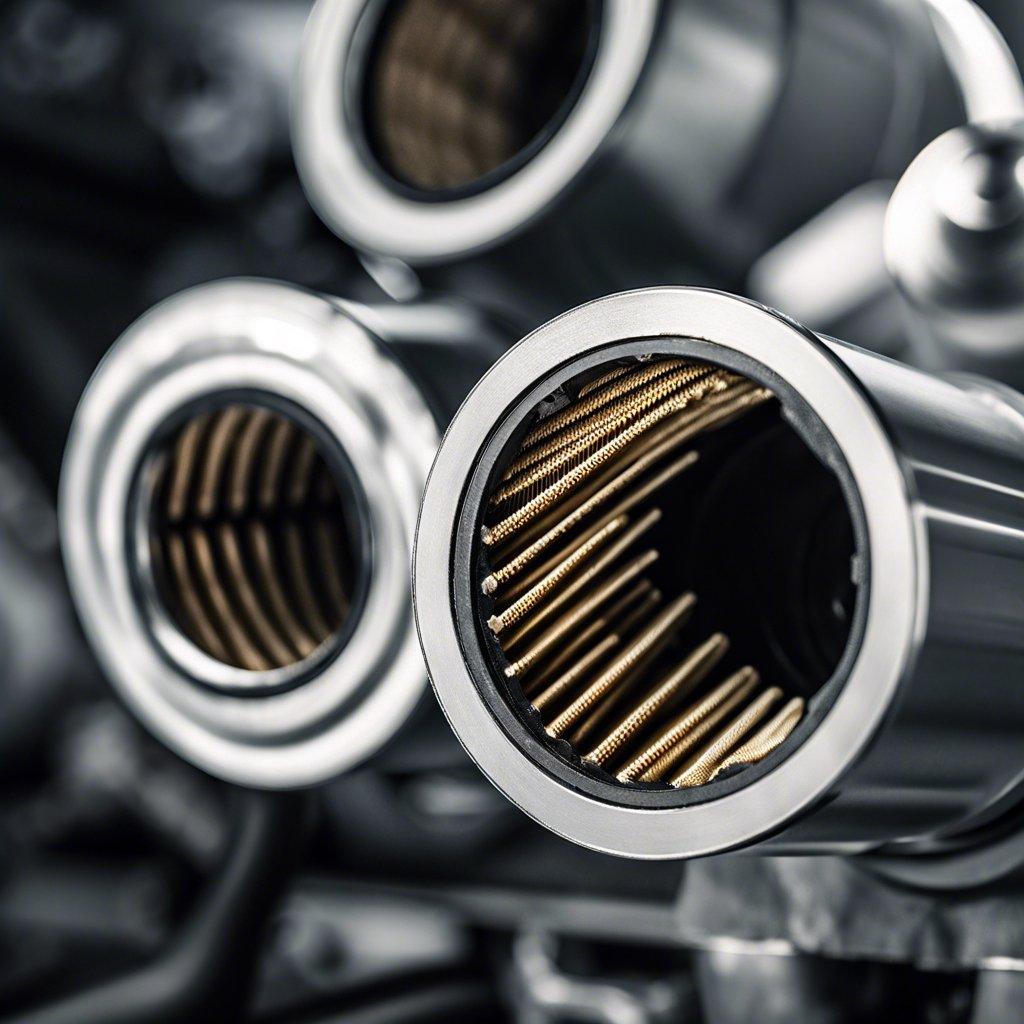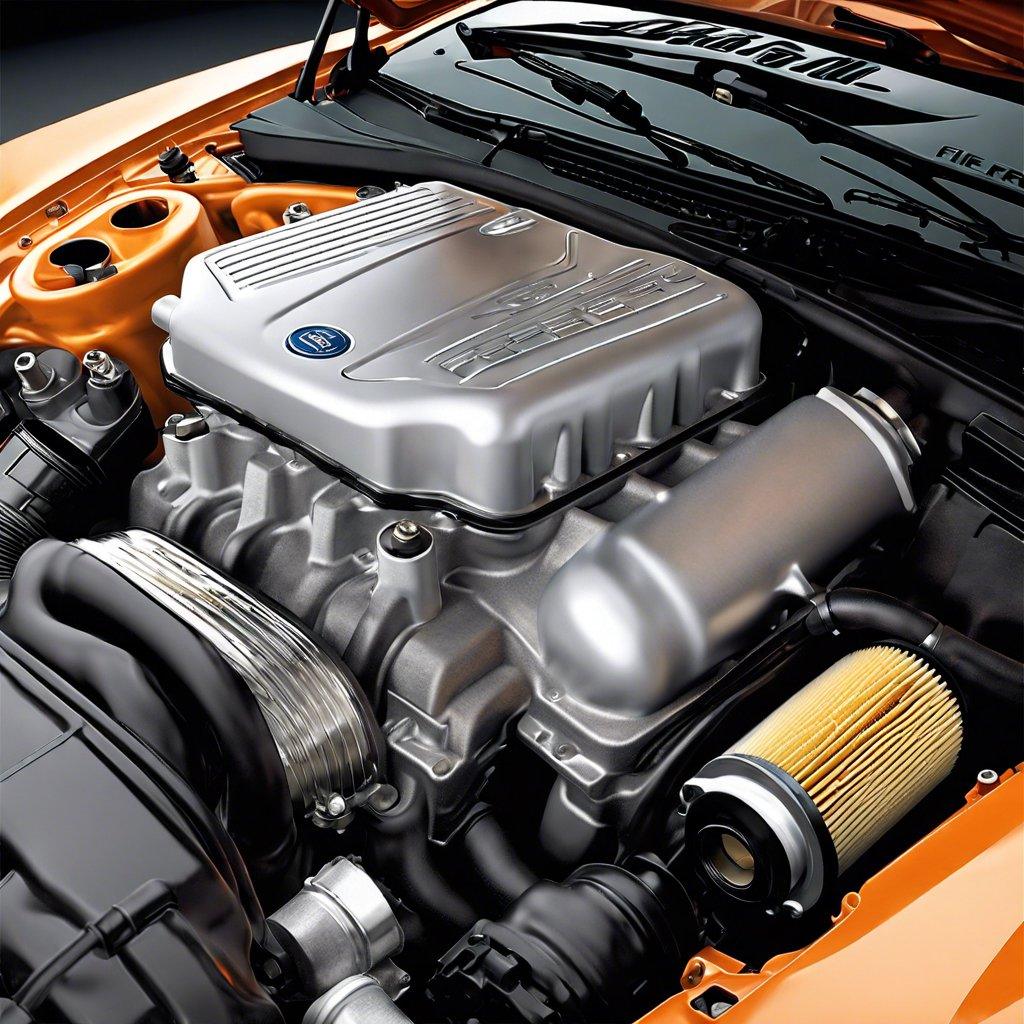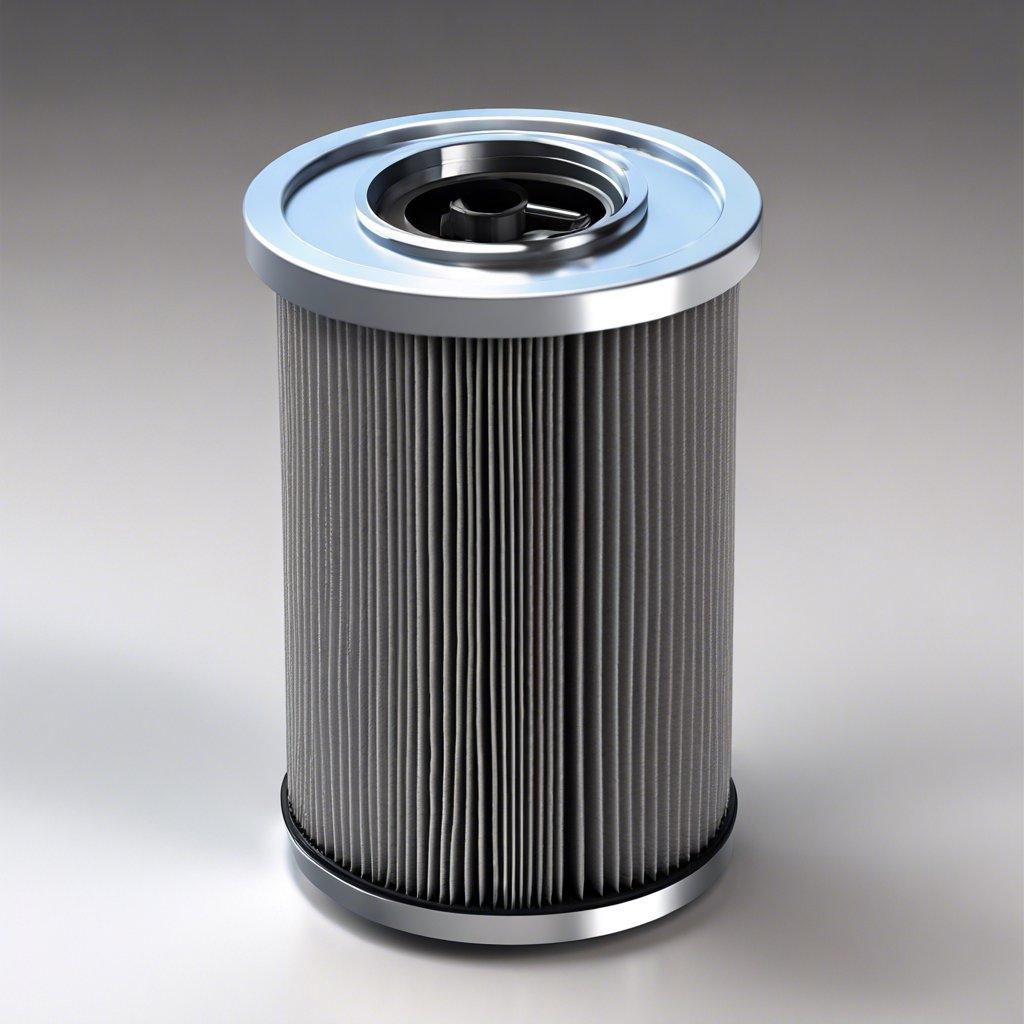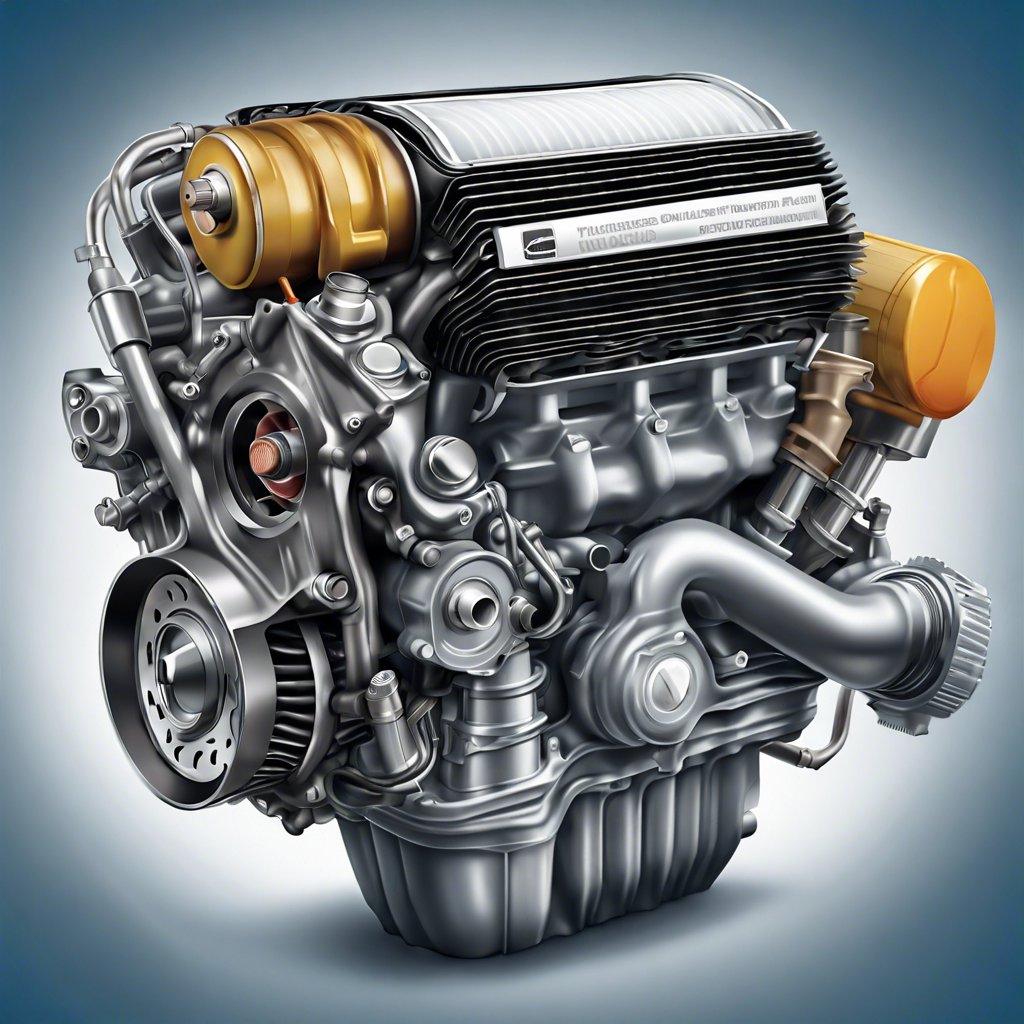Fuel Filter Replacement: How Often Should It Be Done?
Optimal Fuel Filter Maintenance: A Critical Component for Efficient Engine Performance

The Importance of Fuel Filter Replacement
The fuel filter is a vital component in a vehicle’s fuel system, responsible for removing impurities and contaminants from the fuel before it reaches the engine. Proper maintenance of the fuel filter is crucial for ensuring efficient engine performance, prolonging the engine’s lifespan, and preventing costly repairs.
Determining the Optimal Replacement Interval
The recommended fuel filter replacement interval can vary depending on several factors, including the vehicle’s make, model, age, and driving conditions. Generally, it is advisable to replace the fuel filter according to the manufacturer’s recommendations, which are typically between 30,000 to 60,000 miles or every 12 to 24 months.
Factors Affecting Fuel Filter Lifespan
Several factors can impact the lifespan of a fuel filter, including:
- Fuel Quality: Poor-quality fuel with higher levels of contaminants can cause the fuel filter to become clogged more quickly.
- Driving Conditions: Vehicles operated in dusty, off-road, or high-mileage conditions may require more frequent fuel filter replacements.
- Vehicle Age and Mileage: Older vehicles or those with higher mileage may need more frequent fuel filter changes.
Signs of a Clogged Fuel Filter
It’s important to be aware of the signs that indicate a clogged or failing fuel filter, including:
- Decreased fuel efficiency: A clogged fuel filter can restrict fuel flow, leading to a decrease in fuel economy.
- Difficulty starting the engine: A clogged filter can make it harder for the engine to start, especially in cold weather.
- Rough idling or stalling: A restricted fuel flow can cause the engine to run rough or stall.
- Lack of power or acceleration: A clogged filter can reduce the engine’s power and acceleration performance.
Fuel Filter Replacement Procedure
Replacing the fuel filter is a straightforward process that should be performed by a qualified mechanic or service technician. The procedure typically involves the following steps:
- Locating the fuel filter, which is usually accessible under the vehicle or in the engine compartment.
- Disconnecting the fuel lines and any electrical connections to the filter.
- Removing the old filter and installing the new one, ensuring a secure connection.
- Priming the fuel system and checking for any leaks.
- Resetting any diagnostic codes or indicators related to the fuel filter replacement.
Maintaining the fuel filter is a critical aspect of engine care and performance. By adhering to the manufacturer’s recommended replacement intervals and being aware of the signs of a clogged filter, you can ensure your vehicle’s fuel system operates efficiently and reliably, maximizing engine performance and longevity.
Unlocking Fuel System Longevity: The Importance of Timely Fuel Filter Replacement
Maintaining Fuel System Efficiency: The Role of Fuel Filters
In the world of engineering and technology, the efficient operation of fuel systems is paramount. At the heart of this lies the humble fuel filter, a component often overlooked yet crucial to the longevity and performance of your vehicle or machinery. Proper fuel filter replacement is the key to unlocking fuel system longevity and ensuring optimal performance.
The Evolving Demands on Fuel Filters
As engines become more advanced and fuel systems more complex, the demands placed on fuel filters have increased exponentially. Modern fuel systems operate under higher pressures, with tighter tolerances and more sensitive components. Contaminants that may have once been tolerated can now wreak havoc, leading to costly breakdowns and reduced efficiency.
The Consequences of Neglected Fuel Filters
Failing to replace fuel filters at the recommended intervals can have dire consequences for your fuel system. Clogged or dirty filters can restrict fuel flow, leading to decreased engine performance, decreased fuel efficiency, and in severe cases, complete engine failure. Neglecting fuel filter maintenance can also accelerate the wear and tear on other fuel system components, such as fuel pumps and injectors, resulting in expensive repairs down the line.
Establishing a Proactive Fuel Filter Replacement Schedule
To ensure the longevity and optimal performance of your fuel system, it is crucial to establish a proactive fuel filter replacement schedule. The recommended replacement interval can vary depending on factors such as vehicle make and model, driving conditions, and fuel quality. As a general guideline, most manufacturers recommend replacing fuel filters every 30,000 to 50,000 miles or 12 to 24 months, whichever comes first.
Fuel Filter Replacement Best Practices
When replacing your fuel filter, it is essential to follow best practices to ensure the job is done correctly. This includes using the correct replacement filter, properly disposing of the old filter, and ensuring that no contaminants enter the fuel system during the replacement process. Consulting your owner’s manual or seeking the guidance of a qualified technician can help ensure a successful fuel filter replacement.
The Benefits of Timely Fuel Filter Replacement
By prioritizing timely fuel filter replacement, you can unlock a range of benefits for your fuel system and the overall performance of your vehicle or machinery. These benefits include:
- Improved Fuel Efficiency: A clean, unobstructed fuel filter allows for optimal fuel flow, resulting in improved fuel economy and reduced fuel consumption.
- Enhanced Engine Performance: Properly functioning fuel filters ensure that the engine receives a consistent, contaminant-free fuel supply, leading to smoother operation and increased power output.
- Extended Component Lifespan: By protecting sensitive fuel system components from harmful contaminants, timely fuel filter replacement can prolong the lifespan of fuel pumps, injectors, and other critical components.
- Reduced Maintenance Costs: Investing in regular fuel filter replacement can help you avoid costly repairs and breakdowns, ultimately saving you money in the long run.
Conclusion: Prioritizing Fuel Filter Replacement for Optimal Performance
In the fast-paced world of engineering and technology, maintaining the integrity and longevity of your fuel systems is crucial. By prioritizing timely fuel filter replacement, you can unlock the true potential of your vehicles and machinery, ensuring optimal performance, improved efficiency, and reduced maintenance costs. Embrace the power of proactive fuel filter maintenance and unlock the fuel system longevity that your operations deserve.
Maximizing Engine Reliability: Unveiling the Secrets of Proper Fuel Filter Upkeep
Maintaining Optimal Engine Performance: The Crucial Role of Fuel Filters
In the world of engineering and technology, where efficiency and reliability are paramount, the humble fuel filter plays a pivotal role in ensuring the smooth and consistent operation of your machinery. Regularly replacing this unsung hero can mean the difference between a well-oiled engine and one plagued by performance issues or, even worse, catastrophic failure.
Uncovering the Dangers of Neglected Fuel Filters
As fuel flows through the system, it can accumulate a variety of contaminants, ranging from rust and dirt to water and other impurities. These pollutants, if left unchecked, can wreak havoc on the delicate components of your engine, leading to clogged injectors, decreased fuel efficiency, and, in some cases, complete engine failure.
The Optimal Fuel Filter Replacement Interval: A Balancing Act
Determining the ideal fuel filter replacement interval can be a nuanced process, as it depends on a variety of factors, including the operating environment, the quality of the fuel, and the specific demands of your application. As a general rule of thumb, most manufacturers recommend replacing the fuel filter every 30,000 to 50,000 miles or 12 to 24 months, whichever comes first. However, in more demanding situations, such as off-road use or exposure to harsh environments, a more frequent replacement schedule may be necessary to ensure optimal engine performance and longevity.
Proactive Maintenance: The Key to Maximizing Engine Reliability
By staying vigilant and adhering to a regular fuel filter replacement regimen, you can unlock a world of benefits for your engineering and technology applications. Not only will this practice help to extend the lifespan of your engine, but it will also improve fuel efficiency, reduce emissions, and minimize the risk of costly and time-consuming breakdowns.
Embracing the Power of Preventive Maintenance
- Regularly replace fuel filters to maintain optimal engine performance and fuel efficiency.
- Monitor fuel system components for signs of wear or contamination and address issues proactively.
- Consult your equipment’s manufacturer recommendations to determine the ideal fuel filter replacement interval for your specific application.
- Invest in high-quality fuel filters to ensure reliable protection for your engine’s critical components.
Conclusion: Unlock the Full Potential of Your Engineering Assets
By making fuel filter maintenance a priority, you can unlock the true potential of your engineering and technology assets, ensuring they operate at peak performance for years to come. Embrace the power of preventive maintenance and reap the rewards of a well-protected, reliable, and efficient engine.
Fuel Filter Replacement Strategies: Ensuring Smooth Sailing for Your Engineering Marvels
The Importance of Regular Fuel Filter Replacement
As the lifeblood of your engineering marvels, fuel plays a crucial role in the smooth and efficient operation of your machines. However, the presence of contaminants in the fuel can pose a serious threat to the performance and longevity of your equipment. This is where the humble fuel filter steps in, acting as a guardian against these impurities and safeguarding the integrity of your prized assets.
Determining the Optimal Fuel Filter Replacement Interval
The recommended frequency for fuel filter replacement can vary depending on several factors, including the operating environment, fuel quality, and the specific requirements of your equipment. As a general guideline, most manufacturers suggest replacing the fuel filter every 12 months or 12,000 miles (20,000 km), whichever comes first. However, it’s essential to consult your owner’s manual or seek guidance from your trusted service provider to ensure you’re adhering to the manufacturer’s recommendations.
Fuel Filter Replacement Strategies for Maximum Efficiency
To ensure the longevity and optimal performance of your engineering marvels, consider the following fuel filter replacement strategies:
- Preventive Maintenance: Don’t wait for the fuel filter to fail before replacing it. Adopt a proactive approach and replace the filter at the recommended intervals to avoid costly downtime and potential engine damage.
- Monitoring Fuel System Performance: Keep a close eye on indicators such as decreased fuel efficiency, increased engine noise, or difficulty starting the engine, as these could be signs that the fuel filter is becoming clogged and in need of replacement.
- Fuel Quality Considerations: Ensure that the fuel you’re using meets the specifications recommended by the manufacturer. Poor-quality fuel can accelerate the buildup of contaminants, leading to a more frequent need for fuel filter replacement.
- Proper Disposal: When replacing the fuel filter, dispose of the old one in accordance with local environmental regulations to minimize the impact on the environment.
Embracing Fuel Filter Replacement as a Best Practice
By making fuel filter replacement a consistent and integral part of your maintenance routine, you’ll be taking a proactive step towards safeguarding the performance, efficiency, and longevity of your engineering marvels. This simple yet essential task can help you avoid costly repairs, minimize downtime, and ensure your equipment continues to operate at its best, day in and day out.
| Fuel Filter Replacement Interval | Recommended Frequency |
|---|---|
| Passenger Vehicles | Every 12 months or 12,000 miles (20,000 km), whichever comes first |
| Heavy-Duty Vehicles and Equipment | Every 12 months or 12,000 miles (20,000 km), whichever comes first |
| Marine Engines | Every 12 months or 100 hours of operation, whichever comes first |




Post Comment